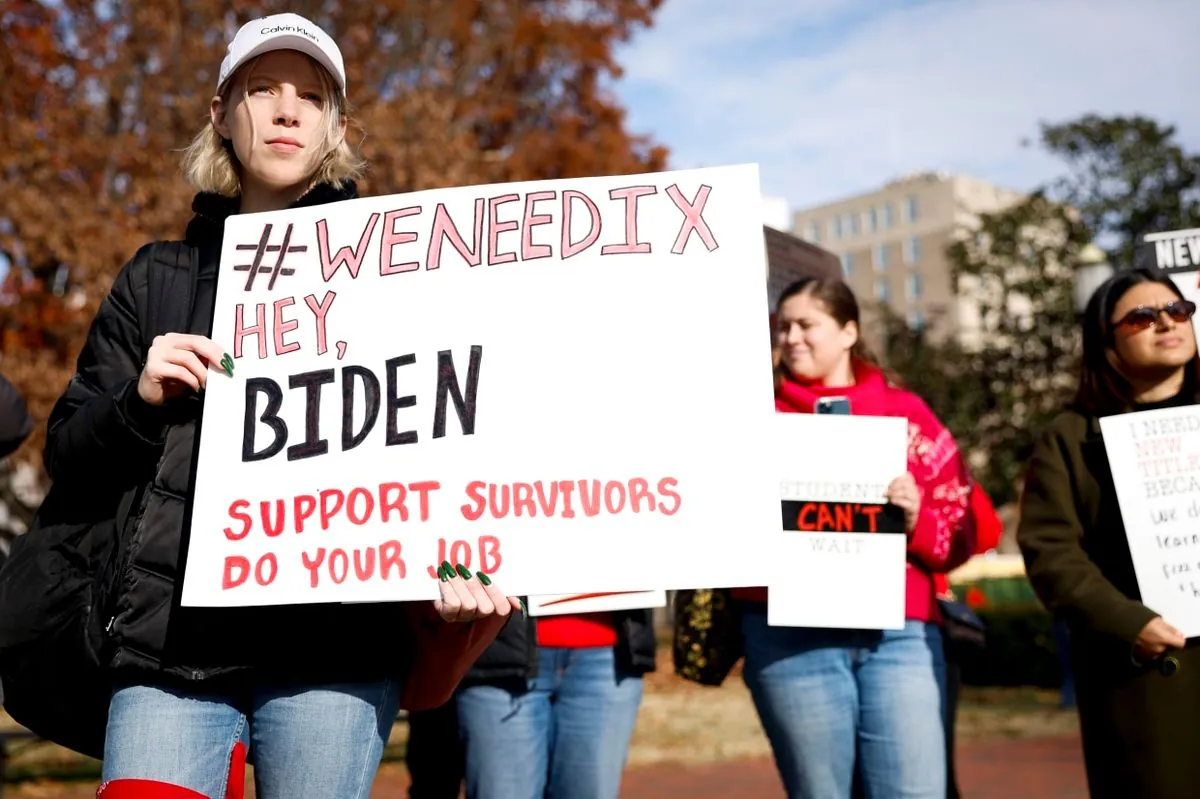Supreme Court Halts New Title IX Rules in Some States, Sparking Debate
The Supreme Court's decision to maintain injunctions on new Title IX regulations in several states has created a divided implementation across the US, fueling ongoing debates on gender identity and education policies.

The Supreme Court has opted to maintain injunctions on new Title IX regulations in certain states, resulting in a fragmented implementation across the United States. This decision, made in August 2024, has intensified ongoing discussions about gender identity and educational policies.
Title IX, enacted in 1972, prohibits sex-based discrimination in educational institutions receiving federal funding. The law applies to approximately 17,600 local school districts and over 5,000 postsecondary institutions, significantly impacting various aspects of education, including sports participation and STEM opportunities.
The Biden administration's interpretation of Title IX, issued in April 2024, expanded the definition of sex discrimination to include conduct related to gender identity. This change aligns with the 2020 Supreme Court ruling in Bostock v. Clayton County, which applied similar logic to employment discrimination.

The new regulations, which took effect on August 1, 2024, in non-injunction states, have faced legal challenges from 26 states. These challenges have resulted in a divided implementation, with the rules enforced in 24 states, the District of Columbia, and Puerto Rico, while being on hold in the challenging states.
Neil M. Gorsuch, along with the court's three liberal justices, dissented from the emergency order. The decision maintains injunctions in 10 states, including Louisiana, Mississippi, Montana, Idaho, Tennessee, Ohio, Indiana, Kentucky, Virginia, and West Virginia.
"We are disappointed in the Supreme Court's decision that creates significant harm to students across the country who are in need of the critical protections the new Title IX rule offers and clarifies."
Supporters of the new regulations argue that they provide necessary protections for transgender students, while opponents claim they violate state laws and exceed federal authority. The debate extends beyond Title IX, with at least a dozen states implementing rules limiting transgender access to facilities matching their gender identity.
Title IX has been instrumental in addressing various forms of discrimination, including sexual harassment and violence. It requires schools to have Title IX coordinators and grievance procedures for handling complaints. Non-compliance can result in loss of federal funding.
As the legal battles continue, the Supreme Court has agreed to review a Tennessee law banning gender-affirming care for minors during its 2024-2025 term. This case will mark the first time the court explores this issue, potentially setting a precedent for similar laws passed in over 20 states since 2021.
The ongoing debate surrounding Title IX and transgender rights in education highlights the complex intersection of federal regulations, state laws, and evolving societal norms. As the legal landscape continues to shift, educational institutions must navigate these changes while striving to provide equal opportunities and protections for all students.


































